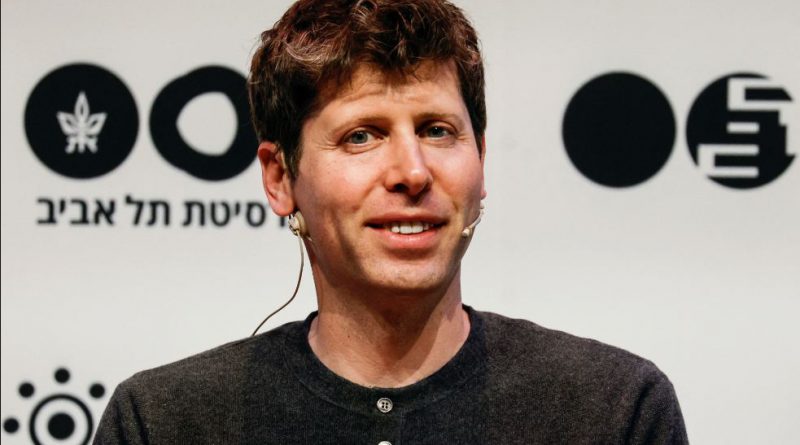OpenAI CEO sees ‘huge’ Israeli role in reducing risks from the technology
Tel Aviv (Reuters) – OpenAI CEO Sam Altman predicted on Monday a “huge role” for Israel in reducing risks from artificial intelligence and eyed investment opportunities in the country even as it debates whether and how to regulate the technology behind ChatGPT.
Altman is one of the tech world’s most prominent voices urging governments to rapidly come up with regulations to make sure AI is used responsibly.
After crisscrossing Europe last month meeting lawmakers and national leaders to discuss the prospects and threats of AI, Altman now plans to travel to Jordan, Qatar, United Arab Emirates, India and South Korea – all this week.
He is currently in Israel, which a Stanford University study has ranked among the top five countries for significant machine learning systems and concentration of AI skills.
“I have been very heartened as I have been doing this trip around the world, getting to meet world leaders, in seeing the thoughtfulness, the focus, and the urgency on figuring out how we mitigate these very huge risks,” Altman said during a meeting with Israeli President Isaac Herzog.
“The energy on making use of the technology and its positive benefits is fantastic to see, and I am sure Israel will play a huge role.”
Visiting Microsoft Corp’s R&D centre in Israel, Altman was asked whether his company might also open a local office.
According to a Microsoft statement issued in Hebrew, “he (Altman) said the company prefers to work together in one location but is studying various investment options in Israel”.
Altman downplayed fears of the impact AI will have on jobs. He said there will always be jobs for humans, despite the growth of automation, although the jobs of “100 years from now will look almost nothing like the jobs of today.”
Safety Concerns
The rapid development and popularity of generative AI since Microsoft (MSFT.O)-backed OpenAI launched ChatGPT last year are spurring global lawmakers to formulate laws to address safety concerns linked to the technology.
“I think it would be a mistake to go put heavy regulation on the field right now or to try to slow down the incredible innovation,” Altman told an audience of some 1,200 people at Tel Aviv University, but said he would obey regulations unlike some social media companies.
The European Union is striding ahead with its draft AI Act, which is expected to become law later this year, while the United States is leaning toward adapting existing laws for AI rather than creating whole new legislation.
Britain also wants to avoid heavy-handed legislation that could stifle innovation.
“Israel – like Britain, and to a great extent like Canada, too – is at the U.S. end of the spectrum,” Ziv Katzir, director of national AI planning at the Israel Innovation Authority, told Reuters.
“It has been working on this matter for the last 18 months or so, with a view to achieving the right balance between innovation and the preservation of human rights and civic safeguards.”
Israel published a 115-page draft AI policy in October and is collating public feedback ahead of a final decision.
Altman also said that the company plans to open source more models over time. “But I don’t think it’s the right strategy to open source everything,” he said.
Altman spoke by phone with Israeli Prime Minister Benjamin Netanyahu, who tweeted that the two discussed opportunities and challenges facing the world and the State of Israel in relation to AI as well as Israeli cooperation to develop the AI field.

